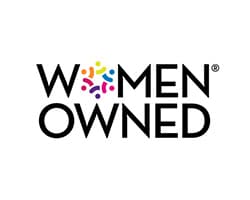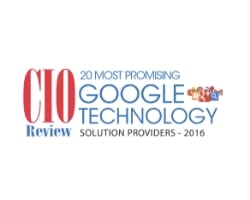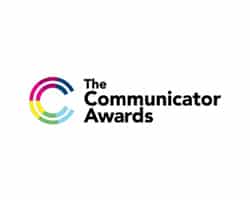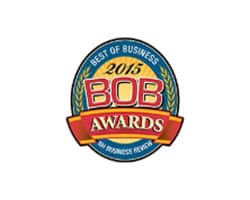The technology industry changes rapidly and, unless you can keep up with adoption, it can become competitive. With many technology firms offering similar products as the competition – in terms of hardware and software – tech brands must have a solid marketing strategy to succeed.
Marketing has been an integral aspect of companies for decades. When it comes to marketing in the tech industry, it is important to show consumers what you have to offer. But it is even more important to communicate why consumers should choose your products and services over someone else’s.
A common misconception is that marketing strategies are drawn from a “cookie-cutter” format. However, the most successful marketing campaigns will use market research and analysis to construct the most effective strategy. With many big names in the tech industry such as Amazon®, Apple®, Samsung® and Microsoft®, it is important to note that all of these multi-billion-dollar companies began small, and it is through their careful marketing strategies that they were able to expand to incredible levels. Let’s analyze their success.
Tech Titans on Top
With billions of dollars in revenue, Samsung clearly stands out among the top 5 most valuable global tech brands. Alongside them is Microsoft, one of the champions of virtual communication and another big name in the global tech industry. As of 2022, it is estimated that over 270 million people actively use Microsoft Teams® alone, the company’s popular video communication platform that revolutionized the COVID workplace. These tech titans have been in the industry for decades, in part due to their careful marketing and branding choices.
Amazon and Apple are two more of the biggest names in tech today. They both also owe a significant amount of their success to smart marketing. The thing is, these tech giants did not achieve worldwide success overnight. When looking closely at their marketing efforts, you can see that each one mastered their own unique strategies.
With that said, to understand how tech brands became successful; you need to study how these businesses:
- connect with their consumers
- stand the test of time and
- deliver immense financial value.
In this blog, we’ll look at several tech companies who have become enormously successful. Let’s dive into what makes these brands so popular among consumers and explore top marketing secrets of the tech world.
1. Differentiation – Amazon
Amazon began as a platform for e-commerce transactions of just about anything customers could think of. Now, the multi-billion-dollar company is a major player in the e-commerce, cloud computing, digital streaming, and artificial intelligence markets. And that’s just a few of them. Since the beginning of the COVID-19 pandemic alone, Amazon’s profits have increased by over 220%. The company owes much of this success to its brand positioning of being “different” from the competition. This has allowed the company to become one of the biggest authorities in the tech industry.
Amazon’s marketing strategy mainly focuses on offering millions of products in the USA – and at record times with their Amazon Prime® membership and shipping benefits that offer same day or next day shipping on thousands of items for free. The tech brand’s product range is probably the widest among both online and brick-and-mortar retailers. They offer everything from security cameras, at home virtual assistants – i.e., Amazon Alexa®, – and even full-size tech-based home appliances. Amazon’s marketing strategy positions them as being one-of-a-kind when it comes to stock availability and delivery times.
The marketing team at Amazon has polished the brand to be perceived as:
- more convenient
- more reliable
- the primary choice for just about anything consumers could need.
Likewise, Amazon promotes all of its technology as being conveniently cross-compatible. This allows for the syncing of devices to create a cohesive, user-friendly technological experience that is beneficial to the customer. Amazon’s marketing strategy focuses on all the ways they are able to deliver a better experience than the competition. This highlights the many ways in which Amazon is different from other e-commerce and tech companies.
Apple
You can’t discuss marketing strategies and differentiate a brand from its competition without mentioning Apple’s most successful marketing campaign to date: “Think Different.” The message of thinking differently represents a couple of ideas, including innovation and creativity. This differentiation strategy helped Apple rise to be among the most valuable tech corporations to date. Of course, all of this wouldn’t be possible without the company’s razor-sharp execution. As the famous saying goes, “vision without execution is a delusion.” Apple’s marketing strategy focuses on how they were different and more innovative than other tech brands.
In the early design years of Apple, the company focused on simplistic designs and never risked overdoing anything. Ranging from iPods® and iMacs® to iPads® and iPhones®, Apple always added an elegant touch to its simplistic design, which its millions of customers have always appreciated. The same can be said for Apple’s interface. The brand always ensured that its interface was user-friendly and simple enough for all of its customers to understand. Apple has established a distinct appearance and experience when it comes to their technology. As a result, they have consistently differentiated themselves and their technology from the competition.
2. Positioning – Microsoft
When it comes to a successful tech marketing, success lies in the ability to cohesively position your brand. For example, Microsoft’s positioning and targeting practices are focused on the entire global population. This tech giant positions itself into the mass market with empowering, multi-brand, and signature positioning strategies. Valued at over $2 trillion, rather than relying on positioning to create brand awareness, Microsoft uses their positioning to expand their target audiences and appeal to everyone.
Microsoft has a strong emphasis on empowering “all” and providing technology for any user. Microsoft positions itself around its products and emphasizes the interchangeable compatibility with all of its sister brands’ products – such as Xbox® and Skype®. As a well-known tech giant, Microsoft’s positioning strategy is now focused less on its brand values and more on the products and services it has to offer.
Positioning itself as a tech brand for users of all types allows Microsoft to be able to effectively market itself to audiences of all makeups. They come off as “for the people,” and customers who are looking for a personalized, cross compatible setup are immediately drawn to Microsoft for their empowering positioning.
3. Marketing Strategies – Samsung
Samsung’s marketing strategy has evolved a lot since it’s foundation in the 1970s. Having started as a lower-tier tech company, they have undergone considerable marketing strategy changes and, as of the 21st century, they have established themselves as a big name in high-quality tech.
The Samsung marketing strategy is product-centric and relies heavily on announcing marketing products in a way which makes them feel luxurious. This not only involves the look and function of the technology, but also the look and feel of the brand. As Samsung offers a variety of tech from phones to televisions to speakers and more, they are constantly changing their marketing strategy to target the right audiences for the right product. In an effort to appeal to higher price points, Samsung also considers their vendors and their positioning and chooses to primarily sell their products via known technology retailers such as Best Buy® and Amazon.
After curating their sleek, high-quality image, Samsung focuses their marketing strategy on centering themselves as an innovative tech brand that delivers cutting edge, unique technology that competitors have not even begun to dream of. Over time, Samsung has established a marketing strategy that aims to push technological innovation that has been fashioned to appeal to the most modern of customers. Samsung’s marketing strategy focuses on why their technology is the most innovative and unique, while still being user-friendly for all. They highlight their products as being reliable and long-lasting, while still being affordable for the general consumer.
Although Samsung has gone through many marketing strategies and campaigns during its over 40 years of operation, centering their efforts around emphasizing the appeal of their products has proved very successful for the tech titan. By the end of 2020, Samsung was among the top 5 globally when it came to overall brand value.
Modern Marketing Tools
Unlike traditional methods that rely on making a sale via a single medium, modern marketing techniques involve brands connecting with consumers across a long list of touchpoints, devices, and mediums. In essence, modern marketing tools have 3 core principles:
1. Customer Centricity
Modern marketing techniques place customer experiences at the very forefront of every business objective. For this reason, marketers gather, analyze, and apply crucial data insights at every stage of the customer journey, which creates a dynamic loop.
2. Integration
Using a blend of digital and traditional disciplines, modern marketers integrate various marketing techniques and are constantly embracing new technologies. This is why Netflix® is always on the lookout for inventive and new ways of introducing multiple tools and channels that could come together to offer excellent customer experiences. Instead of placing all of their eggs in one basket, Netflix initially used several marketing channels to increase audience engagement. This includes interactive ads on Snapchat (remember the virtual reality experience where you could explore all the eerie Christmas lights in Joyce Byer’s house?), Twitter®, and word-of-mouth marketing.
3. Nimbleness and Innovation
Another important detail about modern marketing strategies in the tech industry is that it is agile in keeping up to date with marketing innovations. As one of the ultimate digital disruptors, Netflix rose to power by breaking the mold — and the hearts — of Blockbuster® employees and every illegal download website owner. It’s no surprise that the company would continue in the same vein by actively exploring unorthodox means of marketing.
Being unpredictable and experimental is the foundation of modern marketing. Whether it’s their memorable embrace of augmented reality and edgy video marketing, or their twist on the reliable old email, Netflix never stands quietly in line with its rivals. Black Mirror’s Bandersnatch was the beginning of a whole new era of television, and it came from Netflix’s desire to continually push boundaries.
Final Thoughts
When crafting a marketing strategy for your tech brand, take the time to carefully craft your unique strategy. Use in-depth research and analysis, and focus on what makes your products and services better than your competitors’. Tech consumers desire the most innovative and customizable technology experience on the market. Thus, positioning your brand to provide that – and more – is a surefire way to foster brand success. Additionally, ensure that your brand position is unique enough to stand out. Give consumers the impression that you have exactly what they need: just make sure you can actually deliver it. In all, marketing in the tech industry with a carefully executed strategy will increase your brand awareness and customer loyalty.
About Millennium Agency
Millennium Agency is a nationally recognized, top woman-led boutique creative branding, storytelling/messaging and digital marketing strategy firm with a passion for accelerating your business growth. By uniting creative branding and data analytics, our expert teams combine your vision with our marketing expertise and methodology to deliver exceptional results. With offices in Boston and New Hampshire, and a worldwide presence, the professionals at Millennium Agency would like to learn more about your business. Visit www.mill.agency or book time here.


























